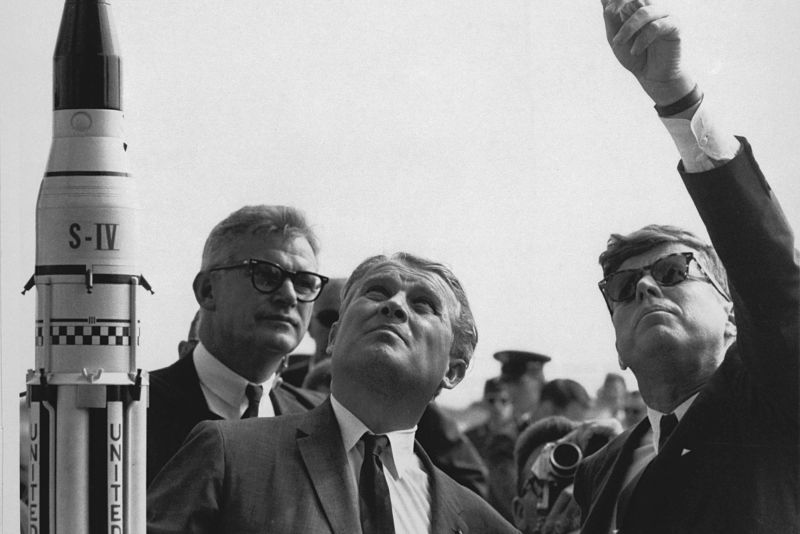Partisan differences show up in reasons why Americans support NASA

Enlarge / L-R: NASA Deputy Administrator Robert Seamans, Marshall Space Flight Center Director Wernher von Braun, and President John F. Kennedy. (credit: NASA)
Almost two-thirds of Americans agree that the space program's costs are justified. And fewer think that NASA's budget should be reduced or abolished than at any time since 1986. Those were two of the results from polling conducted by Gallup for the 50th anniversary of the Moon landing. The poll found a clear upward trend for support for space exploration, starting at 41% in 1979 and rising to 64% by 2019.
But much less is known about why different Americans are in favor of space exploration. That would be useful information for policymakers-of all stripes-who hope to convince the public to open their wallets. It's a question that David Burbach, a political scientist at the US Naval War College in Rhode Island, has sought to answer in a new study published in the journal Space Policy.
Crossed prioritiesPrevious work has identified demographic or social differences in public support for the space program. Being young, white, male, or more highly educated all correlate with greater support for NASA than being older, non white, female, or having a lower educational attainment. Evangelical Christians are more lukewarm on the idea than the rest of the nation, but as it turns out there's not much of a split between Republican and Democratic voters on the topic.
Read 9 remaining paragraphs | Comments